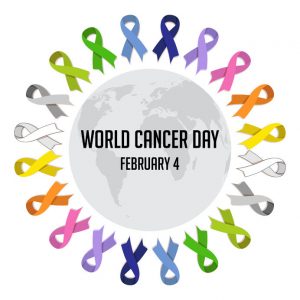What is Cancer?
Cancer is a generic term for a group of diseases and can affect any body organ.

Cancer arises from the interaction between genetic and environmental factors.
Known environmental carcinogenic factors can be:
- Physical (ie. Ultraviolet radiation)
- Chemical (ie. Components of tobacco smoke) or
- Biological (ie. infections from viruses, bacteria or parasites)
Presentation
Cancer usually forms as a solid tumour (called a malignant tumour) which has the ability to invade other tissues and spread throughout the body (this is called metastasis).
Symptoms
Symptoms vary according to the system affected ie. cough, hoarseness, any skin changes or lumps, abdominal pain or unexplained weight loss, difficulty swallowing, unusual bleeding (for example in urine, stool, vaginal) or feeling weak and tired. These symptoms are not always cancer, but if they persist for longer than two weeks, it is important to see your doctor.
While cancer is a chronic disease, 30-50% of cancers are preventable through lifestyle modifications while 40% of cancers are curable if diagnosed early. (WHO, 2017)
According to the CDC, being overweight or obese is associated with at least 13 different types of cancers while a balanced Mediterranean diet has been proven to significantly reduce risk for cancer (Schwingshackl &Hoffmann, 2014).
Tobacco use is the single most important modifiable risk factor for cancer.- WHO, 2017
Exposure to other peoples’ cigarette smoke (passive smoking) causes cancer which can be prevented through proper implementation of smoking bans that could save hundreds of thousands of children and non-smokers every year. (National Health Institute, 2011)
Prevention
Major Risk Factors: Tobacco use, alcohol use, unhealthy diet and physical inactivity (WHO, 2017)
| Take Action! | Explanation |
| Quit smoking and use of all forms of tobacco! | Tobacco smoke contains over 70 known carcinogenic substances. |
| Make your home smoke-free and support smoke-free public spaces and workplaces | Passive smoke causes cancer in non-smokers. |
| Manage your weight and maintain a healthy Body Mass Index (BMI) | Obesity has been linked with increased incidence of cancers. |
| Eat a healthy diet rich in fruits and vegetables high in fibre and avoid processed foods | 30% of all cancer cases have been linked to poor diet according to WHO |
| Get active! | A key factor found in reducing risk for cancer is getting regular physical activity |
| Limit intake of alcohol | Alcohol has been linked with increased incidence of several types of cancers. |
| Take measures to reduce radon exposure in your home. | |
| Ensure your children take part in vaccination programs | Get vaccinated against Hepatitis B, Human Papilloma Virus (HPV) etc. |
(IARC, European Commission)
Preventable Cancers
| Common Types of Cancers | Prevention | Physicians’ recommendation when indicated |
| Lung |
|
|
| Melanoma |
|
|
| Cervical (women) |
|
|
| Breast (women) |
|
|
| Prostate (men) |
|
|
| Bowel |
|
|
(National Cancer Institute, 2015)
Treatment
Recent advances in chemotherapy (immunotherapy, molecular, targeted or precision therapy), in surgery (minimal invasion and video-assisted procedures) and in diagnosing and staging (CT scan, PET scan, endoscopic ultrasound) have led to early diagnosis, improved prognosis and quality of life.
Treatment options:
|
|
(National Cancer Institute, 2015)
For more information on Cancer, visit the KEELPNO, WHO, CDC and National Institute of Cancer websites.
References
Center for Disease Control and Prevention. (2017). Cancer and Obesity.
International Agency for Research on Cancer, & European Commission. (n.d.). European Code Against Cancer – International Agency for Research on Cancer (IARC). European Commission: 12 ways to reduce your cancer risk.
National Cancer Institute. (2011). Secondhand Smoke and Cancer.
National Cancer Institute. (2015). Treatment for Cancer – National Cancer Institute.
Schwingshackl, L., & Hoffmann, G. (2014). Adherence to Mediterranean diet and risk of cancer: A systematic review and meta-analysis of observational studies. International Journal of Cancer, 135(8), 1884–1897. https://doi.org/10.1002/ijc.28824
WHO | Cancer. (2017). WHO.
For the Greek version of this article click here.
